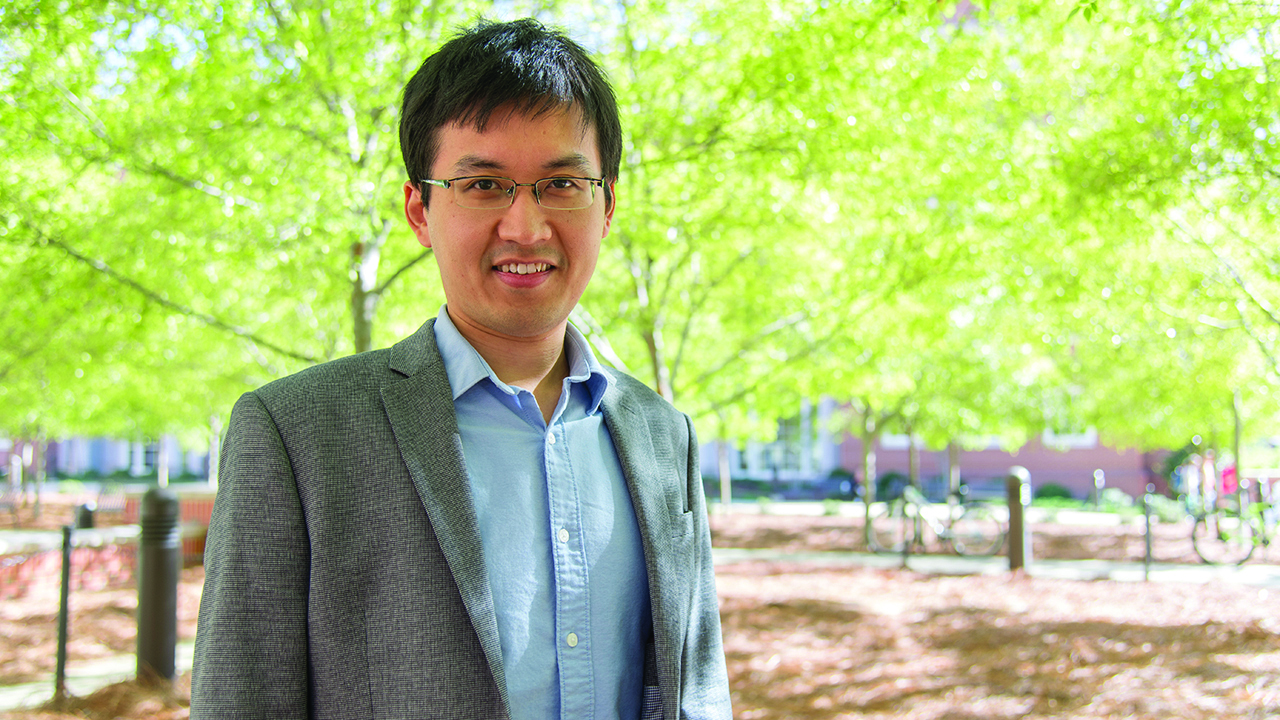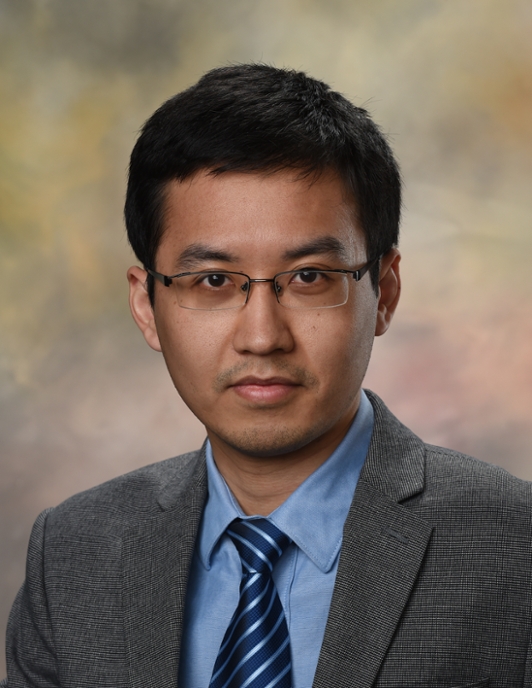Professor in electrical engineering earns $500,000 NSF CAREER Award
Published: Jun 9, 2022 8:10 AM
By Joe McAdory
Xiaowen Gong, assistant professor in electrical and computer engineering, recently earned a five-year, $500,000 National Science Foundation (NSF) Early Faculty Career Development (CAREER) Award for his project, “Towards Efficient and Fast Hierarchical Federated Learning in Heterogeneous Wireless Edge Networks.”
The CAREER Award is the NSF’s most prestigious prize in support of junior faculty who exemplify the role of teacher-scholars through outstanding research, excellent education, and the integration of education and research within the context of the mission of their respective organizations.
“I’m so humbled to receive this honor,” said Gong, who specializes in wireless engineering. “I’m very fortunate. There are so many other researchers who do excellent work but have not received this award. I view this award more as inspiration and encouragement for my future work.”
Gong is the third Auburn Engineering professor to win the NSF CAREER award in six months. Vrishank Raghav, assistant professor in aerospace engineering, was given $500,000 in December for his integrated research and educational activities on fluid-structure interactions in pulsatile flow. Anh Nguyen, assistant professor in computer science and software engineering, was awarded $460,000 in March to explore creative ways to improve artificial intelligence’s functionality.
“An NSF CAREER Award is often considered as the pinnacle of success for a faculty member in the early stages of their career and is clearly indicative of a bright future. Xiaowen obviously has a bright future,” said Mark Nelms, electrical and computer engineering department chair. “As you know, research is the hallmark of our great university and we’re proud of the transformative, impactful research he continues to provide.”
Gong’s project is expected to advance the fundamental understandings of and develop adaptive and efficient algorithms and schemes for computation and communication designs of wireless hierarchical federated learning – a machine learning approach that trains a machine learning system across multiple decentralized servers from distributed wireless devices with local data samples — while also addressing its challenges.
“Within a hierarchical federated learning structure, we have multiple local servers – where each local server communicates with its associated wireless devices and then aggregates information from those local devices,” Gong said. “These wireless devices can be smartphones, laptops, iPads, connected vehicles, collaborative robots, or smart appliances. This study is very important because in the future, we will have even more advanced wireless devices sharing information, such as drones and autonomous vehicles. That’s the future that people have envisioned for a long time.”
Such wireless hierarchical federated learning can enable, for example, a large number of wireless devices to learn patterns of users’ activities and needs in a distributed and collaborative manner, which can help better serve the users.
Gong will tackle three previously unexplored aspects of wireless hierarchical federated learning:
- Heterogeneous and time-varying computation configurations for participating devices, which have non-trivial impacts on training loss, training time and computational costs;
- Time-sharing based communication resource allocation among wireless devices, which result in non-trivial coupling between computation configurations and communication scheduling;
- Impacts of the hierarchical communication structure and communication frequencies on the convergence performance when devices have heterogeneous computational configurations.
Gong believes his findings will have the potential to enable intelligent control and management of wireless communications and networks while supporting a variety of emerging AI applications over wireless networked systems, including within industrial sectors.
The NSF CAREER Award also focuses on the integration of research within education. Gong proposes hands-on wireless and machine learning/AI projects for college students and outreach activities on robotics for K-12 students. Gong was previously granted $589,889 by the NSF to provide hands-on research experiences in robotics and machine learning/AI to about 30 STEM middle-school teachers in underserved regions of Alabama over the next three years.
“We hope this project will improve the content knowledge for students and teachers in underserved areas of Alabama through the development of innovative curriculum modules based on cutting-edge technologies,” he said.
Other Auburn Engineering scholars earning NSF CAREER Awards in the past several years include Jack Montgomery ( civil and environmental engineering), Lauren Beckingham (civil and environmental engineering), Majid Beidaghi ( materials engineering), Pengyu Chen (materials engineering), and David Roueche (civil and environmental engineering).
Media Contact: , jem0040@auburn.edu, 334.844.3447


